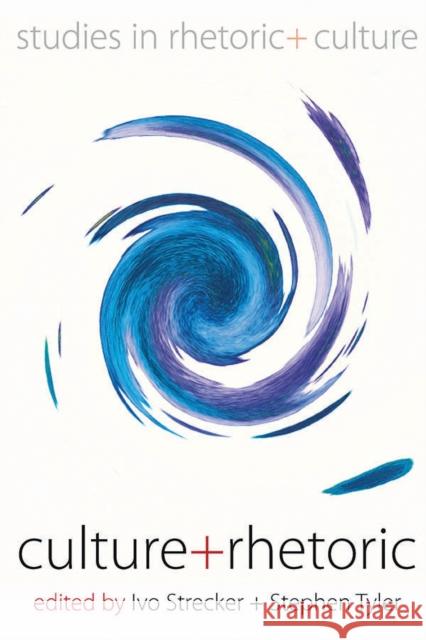Culture and Rhetoric » książka
Culture and Rhetoric
ISBN-13: 9780857456656 / Angielski / Miękka / 2012 / 268 str.
This collection of essays draws in some of the influential thinkers in anthropological rhetoric from both Europe and America. What is new here is the focus on the chiasm of rhetoric and culture, the mutual constitution of persuasive means and the larger cultures that provide the values about which we are to be persuaded. Bernard Bate, Yale University Among them, the contributors put the study of culture on a new, well-worked-out foundation in rhetoric. Their efforts reward close attention. Stephan Feuchtwang, London School of Economics Although I retain from classical British social anthropology a distaste for the word 'culture' I think that Culture and Rhetoric is a very timely book because the future of the human economy is for people to trade at distance, not just things, but what they do for each other. Maybe 'culture' expresses best the infinite variety of what that entails. Keith Hart, Goldsmiths College, London Classical rhetoric viewed its calling as one both analytical and critical within a polity that aspired to be a republic. My reading of Culture and Rhetoric suggests that contemporary rhetoricians and anthropologists will now have to substitute the ancient republic with the oikumene, the whole habitation of sentient beings on this globe. Michael Carrithers, Durham University While some scholars have said that there is no such thing as culture and have urged to abandon the concept altogether, the contributors to this volume overcome this impasse by understanding cultures and their representations for what they ultimately are - rhetorical constructs. These senior, international scholars explore the complex relationships between culture and rhetoric arguing that just as rhetoric is founded in culture, culture is founded in rhetoric. This intersection constitutes the central theme of the first part of the book, while the second is dedicated to the study of figuration as a common ground of rhetoric and anthropology. The book offers a compelling range of theoretical reflections, historical vistas, and empirical investigations, which aim to show how people talk themselves and others into particular modalities of thought and action, and how rhetoric and culture, in this way, are co-emergent. It thus turns a new page in the history of academic discourse by bringing two disciplines - anthropology and rhetoric - together in a way that has never been done before. Ivo Strecker is Professor Emeritus of Cultural Anthropology at the Johannes Gutenberg University of Mainz and co-founder of the International Rhetoric Culture Project in 1998. Stephen Tyler is Herbert S. Autrey Professor of Anthropology (Emeritus) at Rice University, Houston, Texas and co-founder of the International Rhetoric Culture Project in 1
This collection of essays draws in some of the influential thinkers in anthropological rhetoric from both Europe and America. What is new here is the focus on the chiasm of rhetoric and culture, the mutual constitution of persuasive means and the larger cultures that provide the values about which we are to be persuaded. Bernard Bate, Yale University
Among them, the contributors put the study of culture on a new, well-worked-out foundation in rhetoric. Their efforts reward close attention. Stephan Feuchtwang, London School of Economics
Although I retain from classical British social anthropology a distaste for the word culture I think that Culture and Rhetoric is a very timely book because the future of the human economy is for people to trade at distance, not just things, but what they do for each other. Maybe culture expresses best the infinite variety of what that entails. Keith Hart, Goldsmiths College, London
Classical rhetoric viewed its calling as one both analytical and critical within a polity that aspired to be a republic. My reading of Culture and Rhetoric suggests that contemporary rhetoricians and anthropologists will now have to substitute the ancient republic with the oikumene, the whole habitation of sentient beings on this globe. Michael Carrithers, Durham University
While some scholars have said that there is no such thing as culture and have urged to abandon the concept altogether, the contributors to this volume overcome this impasse by understanding cultures and their representations for what they ultimately are - rhetorical constructs. These senior, international scholars explore the complex relationships between culture and rhetoric arguing that just as rhetoric is founded in culture, culture is founded in rhetoric. This intersection constitutes the central theme of the first part of the book, while the second is dedicated to the study of figuration as a common ground of rhetoric and anthropology. The book offers a compelling range of theoretical reflections, historical vistas, and empirical investigations, which aim to show how people talk themselves and others into particular modalities of thought and action, and how rhetoric and culture, in this way, are co-emergent. It thus turns a new page in the history of academic discourse by bringing two disciplines - anthropology and rhetoric - together in a way that has never been done before.
Ivo Strecker is Professor Emeritus of Cultural Anthropology at the Johannes Gutenberg University of Mainz and co-founder of the International Rhetoric Culture Project in 1998.
Stephen Tyler is Herbert S. Autrey Professor of Anthropology (Emeritus) at Rice University, Houston, Texas and co-founder of the International Rhetoric Culture Project in 1998.











